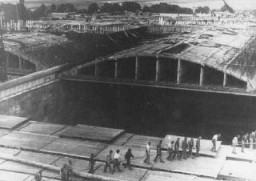You searched for: ������������������������������what���aptao168���plus
<< Previous | Displaying results 601-610 of 674 for "������������������������������what���aptao168���plus" | Next >>
-
Irene Hizme describes being a poster child for Rescue Children
Oral HistoryIrene and Rene were born Renate and Rene Guttmann. The family moved to Prague shortly after the twins' birth, where they were living when the Germans occupied Bohemia and Moravia in March 1939. A few months later, uniformed Germans arrested their father. Decades later, Irene and Rene learned that he was killed at the Auschwitz camp in December 1941. Irene, Rene, and their mother were deported to the Theresienstadt ghetto, and later to the Auschwitz camp. At Auschwitz, the twins were separated and subjected…
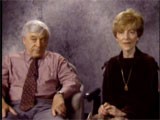
-
Wilek (William) Loew describes Budapest after he escaped from the Lvov ghetto and before the German occupation of Hungary
Oral HistoryWilek was the son of Jewish parents living in the southeastern Polish town of Lvov. His family owned and operated a winery that had been in family hands since 1870. Wilek's father died of a heart attack in 1929. Wilek entered secondary school in 1939. Soon after he began school, World War II began with the German invasion of Poland. Lvov was in the part of eastern Poland annexed by the Soviet Union. Although the Soviets took over Wilek's home and the family business, Wilek was able to continue his…
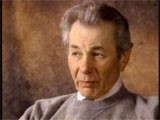
-
Wilek (William) Loew describes Jewish life in prewar Lvov, including restrictions on admission to schools
Oral HistoryWilek was the son of Jewish parents living in the southeastern Polish town of Lvov. His family owned and operated a winery that had been in family hands since 1870. Wilek's father died of a heart attack in 1929. Wilek entered secondary school in 1939. Soon after he began school, World War II began with the German invasion of Poland. Lvov was in the part of eastern Poland annexed by the Soviet Union. Although the Soviets took over Wilek's home and the family business, Wilek was able to continue his…
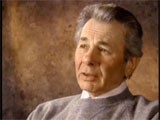
-
Simone Weil Lipman describes helping the Children's Aid Society (OSE) move children to safety in southern France
Oral HistoryWhen Simone was three her family moved to Strasbourg, where her father bred sheep. Simone and her brother were active in Jewish scouting. In 1940, she worked as a teacher in Paris. The Germans invaded western Europe in May 1940. Simone and her family fled German-occupied France for the unoccupied southern zone. There Simone worked at an internment camp for foreign-born Jews. She tried to provide forged documents in an attempt to save lives. Later, Simone assumed a false name and joined the Children's Aid…
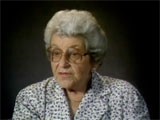
-
Simone Weil Lipman describes camp conditions and her work for the Children's Aid Society (OSE) in Rivesaltes
Oral HistoryWhen Simone was three her family moved to Strasbourg, where her father bred sheep. Simone and her brother were active in Jewish scouting. In 1940, she worked as a teacher in Paris. The Germans invaded western Europe in May 1940. Simone and her family fled German-occupied France for the unoccupied southern zone. There Simone worked at an internment camp for foreign-born Jews. She tried to provide forged documents in an attempt to save lives. Later, Simone assumed a false name and joined the Children's Aid…
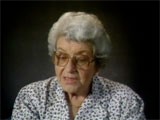
-
Blanka Rothschild describes antisemitic regulations in occupied Lodz, Poland
Oral HistoryBlanka was an only child in a close-knit family in Lodz, Poland. Her father died in 1937. After the German invasion of Poland, Blanka and her mother remained in Lodz with Blanka's grandmother, who was unable to travel. Along with other relatives, they were forced into the Lodz ghetto in 1940. There, Blanka worked in a bakery. She and her mother later worked in a hospital in the Lodz ghetto, where they remained until late 1944 when they were deported to the Ravensbrueck camp in Germany. From Ravensbrueck,…
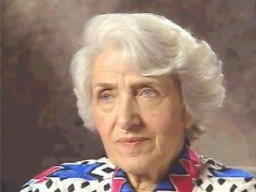
-
Liberation of Nazi camps
Animated MapView animated map of key events toward the end of WWII in Europe as Allied troops encountered concentration camps, mass graves, and other sites of Nazi crimes.
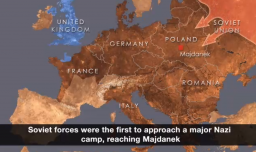
-
Mir
ArticleThe Mir ghetto was established in Mir, Poland in 1941. Learn more about life and resistance in the ghetto.
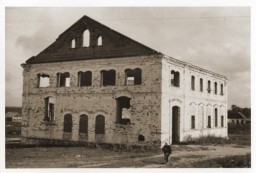
-
München-Schwabing
ArticleLearn about the establishment and history of the Dachau subcamp München-Schwabing, and the role of Eleonore Baur (also known as Schwester Pia or Sister Pia).
-
Bremen-Farge
ArticleLearn more about Bremen-Farge, a subcamp of Neuengamme where the majority of prisoners were used to construct an underground U-boat shipyard for the German navy.
